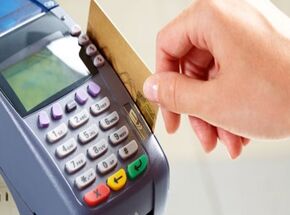办信用卡的优缺点
|
There are people who love credit cards and people who hate them. People on both sides of the credit card fence have a point. If you're trying to decide whether to get a credit card or whether to nix credit cards altogether, consider these pros and cons. The Pros of Credit Cards
#1. Faster to use. Compared to cash, credit cards are much faster to use. Swipe your card and you're done in seconds. #2. Ability to pay in installments. While it's best to pay your credit card balance in full each month, you do have the ability to pay off your balance over a period of time. #3. The credit boost. If used correctly–making your payments on time and keeping your balance low–credit cards help you build a good credit score that you can use to qualify for a mortgage or auto loan. #4. Funding for emergencies. While not the best option for covering an emergency, a credit card can help you cover an unexpected expense if you can't afford to pay it from savings. #5. Ability to earn rewards that can be used for cash, gift cards, miles, or other merchandise. The more you use your credit card, the more rewards you earn. You can redeem your rewards as you go or save up for a bigger redemption. #6. Ability to finance items for free when you take advantage of interest promotions. Many credit cards come with 0% interest on purchases and balance transfers for an introductory period of at least six months. This gives you the convenient ability to pay off your balance over time without incurring an extra cost for the convenience. #7. No need to carry cash. The majority of places accept credit cards, which means you don't have to stop by the ATM to pull out cash before going out. The Cons of Credit Cards With all the benefits that come along with using credit cards, there are some downsides that may turn you off. #1. Temptation to spend more than you can afford. Credit cards open up additional purchasing power and give you the illusion that you have more money than you really do. Studies have shown that people are more willing to spend with credit cards than other forms of payment. #2. They reduce your future income. Each time you use a credit card–or any form of debt–you're borrowing from money that you haven't earned. A portion of your future income has to go toward repaying your credit card balance if you want to protect your credit. #3. The terms can be confusing. A person who's not used to reading credit card agreements can easily be confused by the phrasing and the jargon. Understanding credit card terms is important to use the credit card in a way that doesn't put you at risk of fees. #4. Fees and interest can be expensive. Depending on the credit card and how you use it, your credit can cost hundreds of dollars over the course of a year. This is why understanding the credit card terms is so important – so you know how to avoid credit card fees. #5. Potential for debt. You create debt each time you use your credit card. You can keep the debt from growing by paying off your balance each month, but if you only pay the minimum and keep making purchases, your debt will grow. #6. Misuse can ruin your credit score. Your credit score is tied directly to how you use your credit card. If you run up big balances and pay your credit card late, your credit score will be impacted. |









